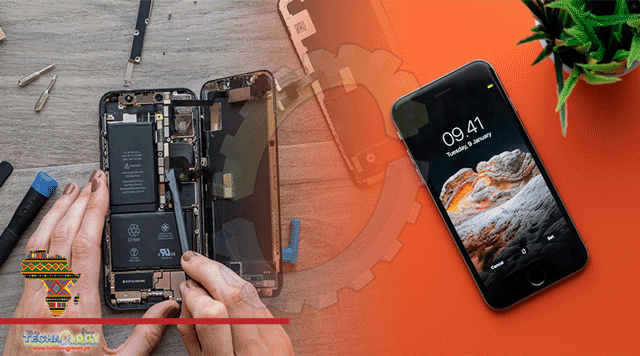Apple’s Independent Repair Partner IRP Programme Is Good News For Small Repairers, Iphone Users, And Insurance Companies In South Africa.

Apple’s Independent Repair Partner (IRP) Programme Is Good News For Small Repairers, Iphone Users, And Insurance Companies In South Africa. This is according to James Winter, director of The Real Repair Company, a South African smartphone and electronics repairer previously known as Apple Doctor. Apple in early April announced the initiative – which was introduced first in the US – would be launching in multiple countries including South Africa.
Apple has pushed the IRP programme as a way to give third party repair shops access to genuine Apple parts, tools, repair manuals, and diagnostics to offer safe and reliable repairs for out-of-warranty Apple products. However, the programme has been criticised by right-to-repair advocates in the US for supposedly imposing strict terms on partner repair shops, which would give the company excessive oversight over small repair shops. In addition, the exact genuine components partners would have access to would severely limit the amount of fixes a repairer can carry out.
Winter told MyBroadband that The Real Repair Company had actually already had experience with the predecessor to Apple’s IRP programme – the Genuine Parts Purchaser (GPP) programme. The company was the first in the southern hemisphere to sign on to this programme in early 2019, after Apple called a meeting with it due to the success of its repair offering. Winter said he was left confused after the negative reports on the IRP, as he believed it was effectively the same as the GPP.
“The GPP was terminated in late 2019 and its morphed into the IRP programme, so they have just changed the name and further expanded the offering,” Winter said. Reports critical of the IRP programme have claimed that Apple would be allowed to conduct unannounced audits and inspections of the partner businesses with the aim of identifying the use of “prohibited” repair parts. If Apple found that more than 2% of a repair business’s transactions involved these products, it could impose a $1,000 (around R14,550) fine per transaction which occurred during the audit period.
While the exact definition of “prohibited” parts was not explained, many assumed this would refer to both third-party Apple components and parts for other smartphone manufacturers like Huawei and Samsung. According to Winter, Apple does not impose any unusual requirements on the repairer – neither in terms of the components used or conditions for inspections. “We’ve never felt restricted by them. Yes, they have these clauses around auditing, but they are pretty standard amongst all manufacturers.”
He said The Real Repair Company was able to purchase and use third-party Apple components, as long as it indicated to a customer when a genuine part was not used. “The only rules that Apple put in place with us is that when someone takes a third-party component, they need to acknowledge that they know it is a third-party component,” Winter said. “They don’t want someone passing off a third-party component as an OEM part.” Winter said he believed the programme would expand over time to include more parts, such as the rear housing.
“For the first time Apple has now allowed us to get rear housings for the iPhone 12,” he added. “That includes the logic board, the Wi-Fi and network modules, the dock connectors, and the camera modules,” Winter said. This would mean the company could perform fixes which previously required a complete replacement. Winter said that the main challenge for its business model remained pricing, but this was largely down to South Africa’s location relative to the suppliers of the parts.
“The pricing problem really comes through for us in this country with getting it here, and the duties, and things like that,” he said. While many third-party components were cheaper, The Real Repair Company has switched to only original Apple batteries for iPhones. “With increased volumes we have managed to get the OEM pricing closer to the third-party batteries, which makes the OEM choice compelling.” Winter said he believed the programme was a benefit to customers and was truly needed.
There was also a real advantage for insurance companies as well, who have had to replace devices at the cost of anywhere between R20,000 and R30,000 when they could be fixed for R5,000. Naturally the programme will mean repair shops gained more business from insurers, while it could also bring down premiums on smartphone insurance in the long run.
This news was originally published at My Broadband.